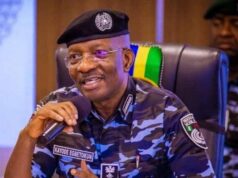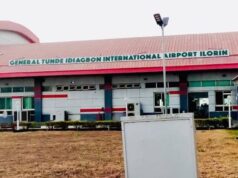 Philosophers across the world have always tried to put a price to the attainment and or the maintenance of peace in any given society: the amount of physical cash, time, resources and man-hour that could be expended to attain peace.
Philosophers across the world have always tried to put a price to the attainment and or the maintenance of peace in any given society: the amount of physical cash, time, resources and man-hour that could be expended to attain peace.
Unable to find a proper price-tag for peace in all its ramifications, an American Author, Robert Fulghum concluded that humanity needed nothing other than selflessness for the much needed peace. According to his postulation, peace is not something we just wish for; it is something we have to make by ourselves: “it is a gift we offer to ourselves. We do not do a favour to anyone by chatting the course of peace because trouble is mobile (air); it steadily comes to our safe homes when we fail to share efforts to stop it from breathing in the very far.”
Of course, emotion has a way of developing wings and flying whenever issue of peace comes up in Nigeria and the religious and by extension, regional matter happen to be the fulcrum of such peace talks.
Some opinions for or against any measure the government intends to take for the attainment of peace and such measure is found to be laden with religious colouration across the regional divides are welcome with sentiment, which, in some cases are well founded, and in most cases, are simply self-serving and even self-destructive.
The same emotion is now flying around the country with all the trappings of religion and regional cleavages, as the issue of amnesty for or forgiveness of the sins of members of Boko Haram is on the table. Boko Haram, to be sure, has held most parts of the North to ransom for close to four years now, bombing, killing, maiming people and destroying public and private properties with impunity. Most of the victims of Boko Haram onslaught are clearly innocence of what the war-mongers perceived to be their grievances.
Indeed, those who are clamouring for amnesty for what the government of Goodluck Jonathan called “ghost” may be having some traces of group-interest, the same way as those who have been opposing the amnesty option. A critical look at the two opposing groups would show dangerous religious and regional slants: just listen to those that are talking on either side!
Of course, it is on record that the original Boko Haram whose members went into offensive against the authorities have been hijacked by many other groups, including armed robbers, yan tauri (the invulnerable) and even political foot soldiers. Such groups are obviously on rampage against the fatherland either as a way of protesting their being neglected by the society or just for the sake of destroy this country for various other reasons.
These later days Boko Haram hijackers seem to be using it to hoodwink government into negotiation for impossibilities.
There is no doubt that this situation has put President Jonathan in an ambivalence position: wishing for peace and wanting to go to any length to attain it but treading in the dark with people that are trying to make nonsense of his government.
In other words, President Jonathan seems to have been sandwiched by groups pursuing selfish political and regional interests agitating for amnesty for Boko Haram as well as groups pursuing religious and regional interest opposing amnesty. And funny enough, each of the groups is claiming to be aiming at peace while peace itself is suffering.
In between these two groups are the security operatives in the “war-front” who may take amnesty for Boko Haram as an affront, by President Jonathan, on their strength and ability to crush the miscreants as promised. They are likely to see amnesty as a way of surrendering to lawless groups by the government, and by immediate implication, they, the fighters.
Whatever happens however, the responsibility for the attainment and maintenance of peace, unity and forward-march of Nigeria lie squally on the shoulders of President Jonathan.
Recall that when near similar situation occurred in the case of Niger Delta, late President Umar Musa Yar’adua chose to tow the path of peaceful resolution in his own way, even when it was obvious, as it is now, that his government would lose some measures of clout, credibility and macho-like muzzle in the eyes of those who viewed peace from different perspectives, most of which were not selfless.
Of course, in spite of the amnesty for the Niger Delta militants, pockets of bombings and killings are believed to still be going on, even as there is every possibility of the “boys” getting back into the creek. President Jonathan had the course to confess recently that the amnesty for the Niger Delta militants has partially failed because of some fundamental issues that were not addressed.
And so, for Boko Haram and even the Niger Delta militants, just as President Jonathan insisted, amnesty must have a lot of components aimed at addressing critical socio-economic and political milieu under which the situation for the militants or terrorist or whatever they may be called rose and thrive. In other words, amnesty programme must of necessity, encompass a comprehensive blue-print for addressing the scourge of poverty and deprivation in all their ramifications.
What the government has so far downplayed is the extreme poverty and social exclusivity that have eaten deep into the fabrics of the society. The government, instead, prefers to address only the monetary gratification aspect of it, which of course, can be regarded as a fire-brigade and short-lived measure.
It must be understood from the fact on ground that the rot in the socio-economic and political environment that has brought us to this dangerous precipice is not the making of the Jonathan administration. It has been a gradually process of sliding into the abyss right from the Independence in 1960, with one or two corrective regimes that interrupted but never lasted.
Indeed, the sum total of the extreme poverty and social exclusivity over the years that have brought us this far into the current security challenge in the North, in particular, and Nigeria in general, is unemployment.
And for Boko Haram, such unemployment provides a fertile ground for the recruitment of new foot soldiers, for miserable pittance.
It is also not impossible that the original grouse of Boko Haram has turned full circle into full political bargaining chips, possibly by politicians that want to remain relevant even when they are supposed to have left the scene long ago.
But, hemmed-in by all these scenarios, is President Jonathan, whose decisions and actions today, as the President of Nigeria, would define the future of Nigeria and would be so judged by posterity.






